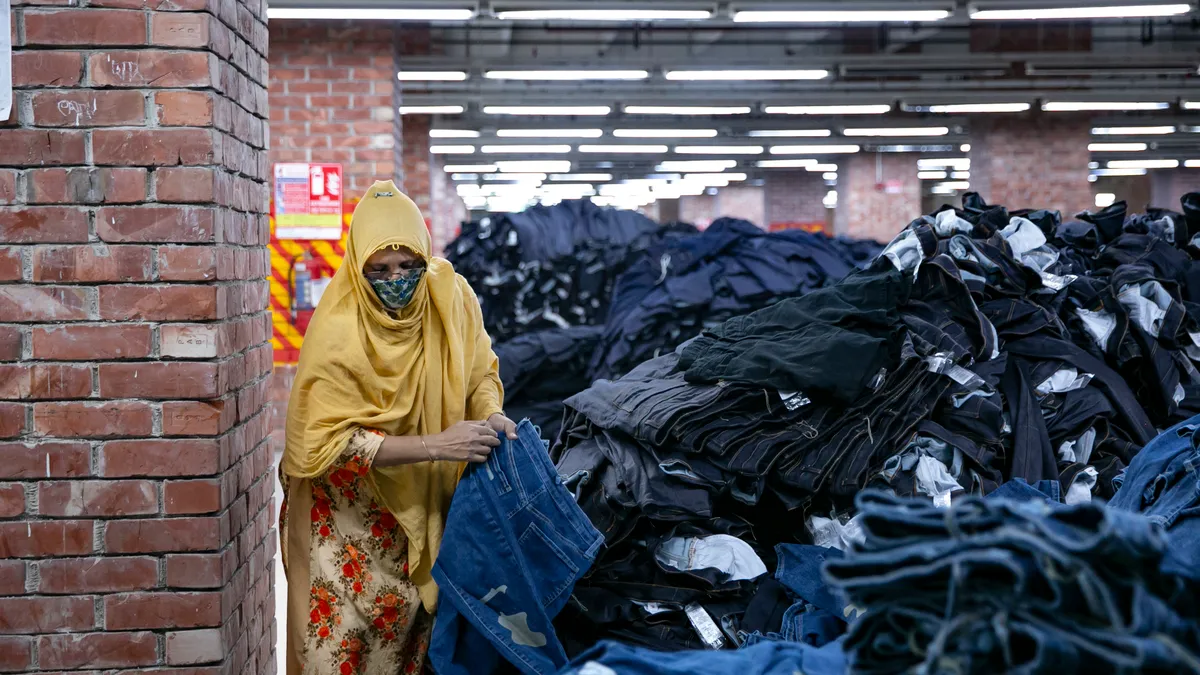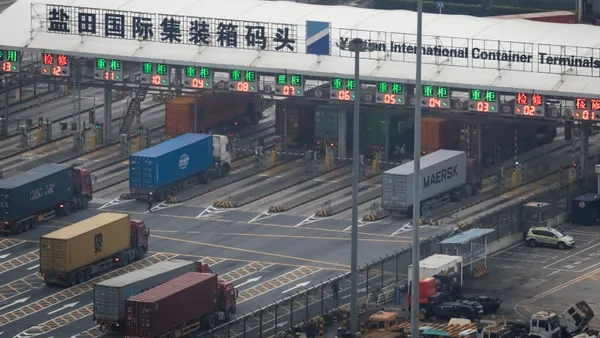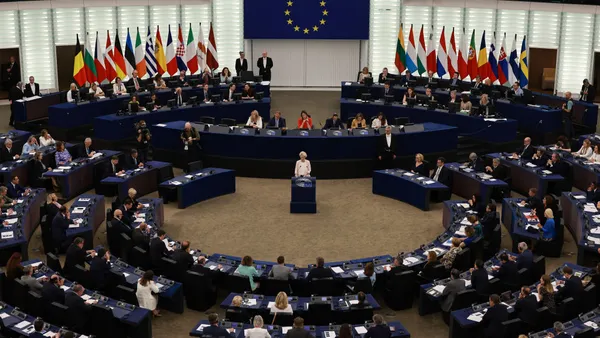Dive Brief:
- Labor unions and garment workers in Bangladesh are calling for an increase to the minimum wage before the Bangladesh government announces its decision on the issue by the end of the year.
- Workers are asking for between $207 and $226 per month (22,000 and 24,000 taka) up from the current $95 per month set in the last negotiations in 2018, according to a report from the Asia Floor Wage Alliance sent to Fashion Dive.
- Garment workers contribute to Bangladesh’s overall GDP, by more than 11%, according to AFWA, and the country is the second largest exporter of readymade garments.
Dive Insight:
The workers are also requesting an annual negotiation process for minimum wage increases in line with rising inflation rates. As it stands, these negotiations take place every five years.
The Bangladesh government formed the wage board for RMG workers in April, and it held its first meeting in May.
Shafiul Alam, central co-organizing secretary of the Bangladesh Garment and Industrial Workers Federation, said in an email to Fashion Dive that while both commodity prices and garment exports have increased since the last wage negotiations five years ago, worker compensation didn’t.
“As a result, far from improving the quality of life, the workers have also lost the ability to buy necessary food,” he said. “...Post-[Covid-19], export growth and dollar appreciation have boosted exporters' incomes, but workers have not benefited. However, the devaluation of money against the dollar and the increase in the price of everyday goods have weighed on the workers.”
Wage issues in this sector have been ongoing and in some cases were exacerbated by the pandemic. A 2020 report from Workers Rights Consortium found that garment workers faced food insecurity and hunger, with 88% of survey respondents saying their household reduced food consumption because their income restricted it.
Conditions in Bangladesh garment factories have been closely watched since the 2013 fire and collapse of Rana Plaza, which left more than 1,100 people dead, marking one of the worst garment factory safety incidents in history. Activism and compliance organizations for such factories spun out of the incident.
According to AFWA, about 4.4 million people, primarily women, are employed in Bangladesh's garment sector.
As an organization that advocates for higher pay for garment workers, AFWA backed demands earlier this year on increasing the wages, prior to the Bangladesh government’s announcement of the wage committee formation. At the time of that announcement, the organization had previously accused Nike of violating guidelines of responsible business conduct.
Clarification: This story includes updated timeline information.











